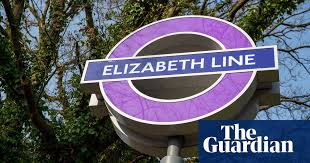Understanding the Elizabeth Line Strike and Its Implications

Introduction
The recent strike on the Elizabeth Line has brought significant disruption to one of London’s most essential transport services. As part of the Crossrail project, the Elizabeth Line connects Paddington to Abbey Wood, providing crucial links across the capital. This strike not only affects daily commuters but also highlights ongoing disputes within the transport sector, especially regarding pay and working conditions. The implications of such strikes can ripple through London’s economy, making it vital for commuters and stakeholders to stay informed.
Details of the Strike
The strike, which began on 15th October 2023, was initiated by members of the Transport Workers Union (TWU) in response to stalled negotiations over wage increases and staffing levels. Union leaders stated that their members had been left with no choice but to walk out after management failed to address their concerns adequately. The action, expected to last for several days, has led to significant reductions in train services, with many lines being suspended or operating at drastically reduced frequencies.
Commuters have reported long wait times and crowded stations as they seek alternative transport options. The strike has drawn both criticism and agreement from various stakeholders, with some commuters expressing empathy for the workers’ plight, while others lament the impact on their daily routines. The Mayor of London, Sadiq Khan, has called on both parties to return to the negotiating table to find a resolution.
Previous Strikes and Comparisons
This is not the first time that the Elizabeth Line has faced service disruptions due to strikes. In July 2023, a similar strike occurred, impacting service just after the line’s official opening. Continuous disputes have led many to question the long-term sustainability of the service and its ability to operate without frequent interruptions.
Conclusion
The Elizabeth Line strike serves as a critical reminder of the ongoing challenges within public transport systems, particularly in major urban centres like London. As union negotiations continue, the significance of equitable working conditions and fair pay for essential workers must remain at the forefront of discussions. Looking ahead, the resolution of this strike could set a precedent for future negotiations in the transport sector, potentially influencing how public services are managed nationwide. Commuters must remain informed, as any extended disruptions could have cascading effects on the city’s broader transport networks.









